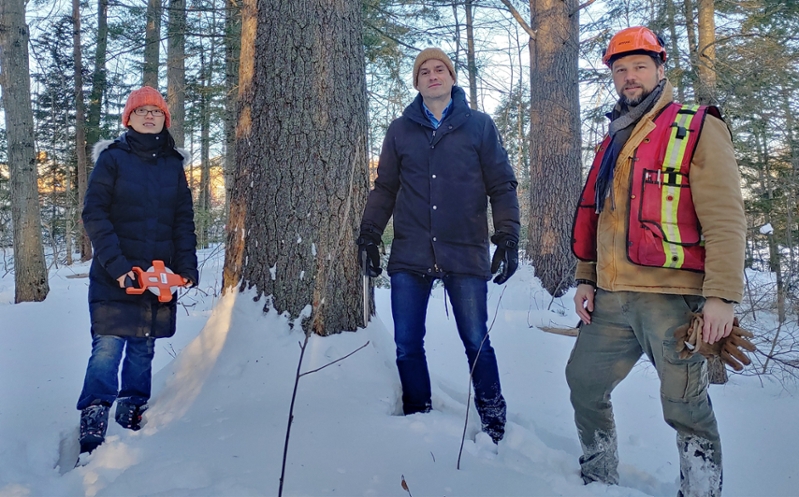Research indicates warming-induced tree growth may provide climate change relief
Author: UNB Research
Posted on Feb 10, 2023
Category: Publications , Research

An increasing number of fires, droughts and insect infestations pose a significant threat to the future of the Canadian boreal forest and to our climate along with it. New research out of the University of New Brunswick (UNB) suggests that increased tree growth, due to warming climates, may offset some of this decline.
Warming-induced tree growth may help offset increasing disturbance across the Canadian boreal forest.
PhD candidate Jiejie Wang and forestry and environmental management faculty members Dr. Anthony Taylor and Dr. Loïc D’Orangeville authored an article on this research titled "Warming-induced tree growth may help offset increasing disturbance across the Canadian boreal forest." It was recently published in the Proceedings of the National Academy of Sciences (PNAS), one of the leading multidisciplinary science journals in the world.
In addition to being an important wood supply, the Canadian boreal forest is a crucial part of resolving the global climate crisis. Making up one-third of the global boreal forest and eight per cent of the world’s forests, the Canadian boreal forest has a substantial carbon sequestration capacity. Unfortunately, it will also experience some of the most significant increases in temperature due to climate change.
However, these same temperature changes may also mean a longer growing season and more growth, according to the researchers. This additional growth would help mitigate the significant impact of those rising temperatures.
Using data from more than one million tree records across Canada and the United States – an unprecedented sample size – the researchers looked at the climatic sensitivity of the growth of major tree species in North America from 1958 to 2018. Using fitted growth models, they then extrapolated these trends over the next 30 years.
Their models forecast an overall positive effect of climate warming on tree growth under several climate change scenarios by the mid-2050s, peaking in colder, wetter regions of the boreal forest found in Eastern Canada. These projected, large-growth gains would significantly impact future wood fibre supply, carbon storage and the global economy.
While the researchers did find an overall positive effect of warming on tree growth, they also observed significant discrepancies within and between species. Some species are projected to grow well across much of their distributional range, including balsam fir as well as jack pine and white birch, both of which are important commercial timber tree species. Conversely, white spruce was the only species studied that modelled rapid growth decline through the 2050s almost everywhere across its natural range, except in northern Quebec.
Though their data suggests a future mitigating effect, the researchers caution that growth is only one of several processes that drive forest dynamics and therefore only paints one part of the picture. Even so, their findings offer a note of hope for the future of forest health and life on a sustainable planet.
More information
Jiejie Wang (orcid) | Dr. Loïc D’Orangeville | Dr. Anthony Taylor | Faculty of Forestry & Environmental Management
Research at UNB | Graduate Studies at UNB | Postdoctoral fellowships